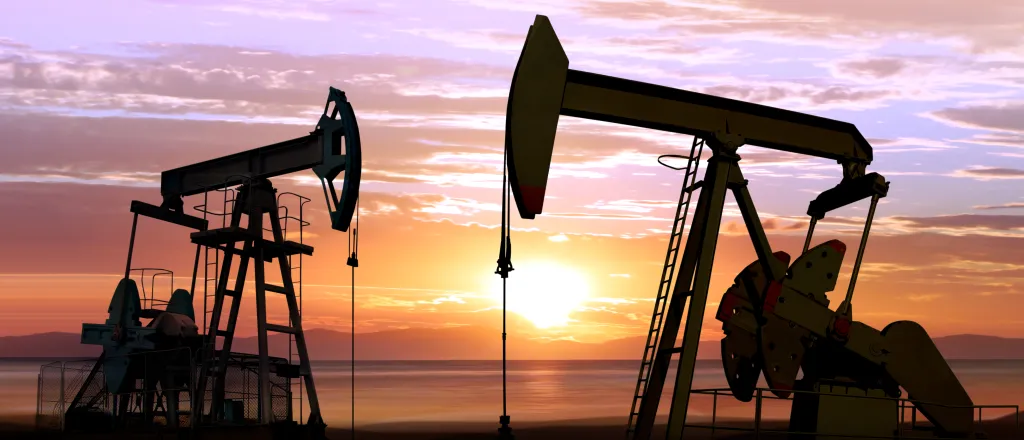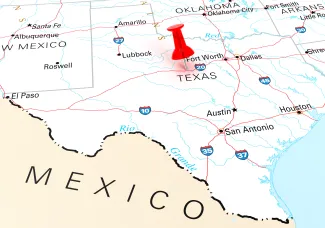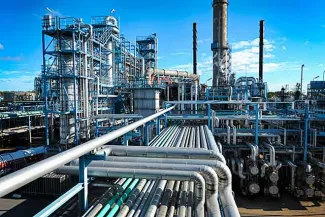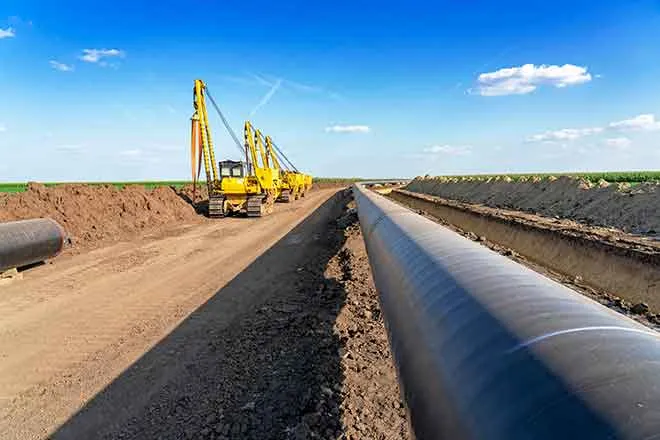
Texas oil and natural gas industry sets third new production record in 2023
(The Center Square) – The Texas oil and natural gas industry set a third production record this year.
In October and November, the Texas industry broke another record-high crude oil production of 5.7 million barrels per day (mb/d), and another new high in natural gas marketed production at 33.6 billion cubic feet per day (bcf/d) in October.
Record highs were also reported in November for natural gas liquids (NGL) production at 3.5 mb/d and in-state refinery NGL direct use at 3.2 mb/d, according to a newly released monthly energy economic analysis prepared by Texas Oil & Gas Association's Chief Economist Dean Foreman, Ph.D.

This is after Texas oil, natural gas, and NGL production reached new record highs in September after surpassing 30- to 40-year record highs the industry broke this summer.
Year-to-date through November, Texas' share of U.S. oil production rose to 42.8 percent and to 28.2 percent for natural gas marketed production, the analysis found.
"These new production records and milestones are continued evidence of strong demand for oil and natural gas and the Lone Star State's commitment to producing these irreplaceable products to meet the growing energy needs of our state, nation and the world," TXOGA President Todd Staples said. "Texas is both a national and global energy powerhouse, with oil and natural gas leading the way."
In the first three quarters of 2023, the U.S. International Trade Commission states that Texas exported oil, natural gas, and derived products worth $164 billion. This includes August 2023 year-to-date totals for crude oil product exports totaling $74.9 billion, sent primarily to Asia Pacific and Europe. It also includes $50.5 billion worth of refined petroleum products sent primarily to North America, Latin American and the Caribbean. It also includes $16.9 billion worth of Texas natural gas, including LNG, primarily sent to Europe, and the Asia Pacific. It also includes $20 billion worth of Texas hydrocarbon gas liquids exported primarily to Asia Pacific, according to the analysis.
"Texas' role in the energy landscape has become increasingly critical, achieving this feat with modest drilling activity, thanks to productivity gains," Foreman said.
This year "was a remarkable year for Texas oil and gas producers," Texans for Natural Gas said. "From breaking production records to innovations to reduce environmental impacts, our operations are a testament to the promising future of oil and gas."

© iStock - lagereek
The Texas oil and gas industry supported the growth of local economies through thousands of added jobs, it notes, helping Texas lead the U.S. in job creation. According to the latest available data, upstream jobs grew by an additional 2,200 jobs in October, reaching a total of 212,900 upstream jobs, largely fueled by record Permian Basin production.
"In spite of turbulent economic times and increasing geopolitical tensions, Texas' oil and natural gas industry continues to grow," Staples said. TXOGA notes that since the COVID-low point of September 2020 through October 2023, the industry added or recovered 55,900 jobs, averaging growth of 1,511 jobs a month.
This year, a record $8.5 billion was deposited into two critical state funds that wouldn't exist without Texas oil and gas industry tax revenue. This is after the industry paid a record breaking $24.7 billion in state and local taxes and state royalties in 2022 – by far the highest total in Texas history. This was a 54 percent increase from its previous record of $16 billion paid in 2019, and more than double what it paid in fiscal 2021. Total revenue data for 2023 will be available early next year.
"The Texas oil and natural gas industry plays an extraordinary role in securing our state and national economy and advancing global stability," Staples said. "However, growth is not guaranteed, and policy can promote prosperity, or hinder it."
The Texas legislature and Gov. Greg Abbott advanced new laws this year to protect the industry and advance Texas' dominance in energy production. One prevents any entity in Texas from following the path of California, for example, by preventing any political subdivision from banning the use of gasoline-powered lawnmowers, gas stoves or engines based on their fuel source. Another codified an executive order Abbott issued prohibiting state agencies and officials from assisting any federal agency or official seeking to enforce any federal act purporting to regulate oil and gas operations or impose a regulation that doesn't exist under state law.
"The hardworking men and women of the energy sector are the lifeblood of the booming Texas economy," Abbot said at a Texas Independent Producers & Royalty Owners Association's conference earlier this year. "We just finished another important legislative session for the Texas energy industry.















